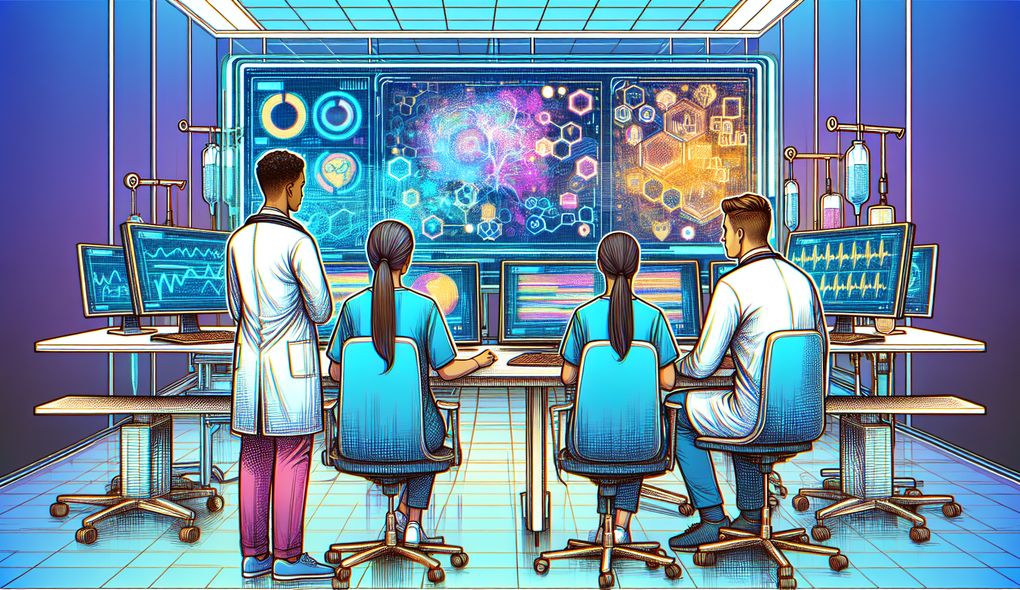How do you effectively communicate complex data analysis findings to non-technical stakeholders?
INTERMEDIATE LEVEL

Sample answer to the question:
When communicating complex data analysis findings to non-technical stakeholders, it's important to break down the information into easily understandable terms. I start by explaining the context and purpose of the analysis, keeping in mind the stakeholders' goals and interests. I then use visual aids such as charts, graphs, and infographics to present the findings in a visually appealing and accessible way. I also provide real-life examples and case studies to illustrate the impact of the analysis on patient care and outcomes. Finally, I encourage open discussion and feedback from the stakeholders to ensure their understanding and address any questions or concerns they may have.
Here is a more solid answer:
In my previous role as a Clinical Analyst, I regularly communicated complex data analysis findings to non-technical stakeholders, including healthcare providers and administrators. To effectively convey the information, I first analyzed the stakeholders' knowledge levels and interests. I then translated the findings into layman's terms, avoiding technical jargon and using relatable examples. To enhance understanding, I employed visual aids like interactive dashboards, charts, and infographics. In one instance, I created a dynamic dashboard that allowed stakeholders to interact with the data and drill down into specific trends. This not only facilitated comprehension but also encouraged stakeholder participation and engagement. Additionally, I ensured that the findings were aligned with the stakeholders' objectives and provided actionable insights. This approach resulted in improved decision-making and the successful implementation of data-driven initiatives.
Why is this a more solid answer?
The solid answer provides specific details about the candidate's past experience of effectively communicating complex data analysis findings to non-technical stakeholders. It demonstrates their ability to tailor communication to the stakeholders' knowledge levels and interests, as well as their proficiency in using visual aids like interactive dashboards. The answer also highlights the candidate's success in aligning the findings with stakeholder objectives and driving actionable insights.
An example of a exceptional answer:
As a Clinical Analyst, I have honed my approach to effectively communicate complex data analysis findings to non-technical stakeholders. Firstly, I establish a strong foundation by building relationships with the stakeholders and understanding their motivations and challenges. This allows me to frame the findings in a context that resonates with their specific needs, such as improving patient outcomes or optimizing resource allocation. Secondly, I employ a storytelling approach to engage the stakeholders and make the data relatable. I share compelling narratives based on real patient cases and highlight the impact of the analysis on clinical decision-making and care delivery. Furthermore, I go beyond static visual aids by leveraging advanced data visualization techniques. For example, I use interactive 3D models to simulate the impact of potential interventions on patient outcomes, enabling stakeholders to explore different scenarios. Finally, I always provide opportunities for interactive discussions and feedback sessions to ensure a two-way communication channel. This not only enhances understanding but also fosters a collaborative environment where stakeholders feel heard and valued.
Why is this an exceptional answer?
The exceptional answer goes above and beyond by showcasing the candidate's ability to build relationships with stakeholders and understand their motivations and challenges. It also emphasizes their storytelling skills and the use of advanced data visualization techniques to make the data relatable and engaging. The answer highlights the candidate's commitment to fostering a collaborative environment and ensuring stakeholders feel heard and valued through interactive discussions and feedback sessions.
How to prepare for this question:
- Develop a strong understanding of the stakeholders' goals, motivations, and challenges to tailor your communication effectively.
- Practice translating complex data analysis findings into layman's terms, avoiding technical jargon.
- Become proficient in using visual aids such as interactive dashboards, charts, and infographics to enhance understanding and engagement.
- Familiarize yourself with advanced data visualization techniques, such as 3D models, to make the data relatable and impactful.
- Hone your storytelling skills by practicing sharing compelling narratives based on real patient cases and highlighting the impact of the analysis on clinical decision-making and care delivery.
- Prepare for interactive discussions and feedback sessions by anticipating potential questions and concerns and developing strategies to address them.
What are interviewers evaluating with this question?
- Communication skills
- Analytical skills
- Knowledge of healthcare processes
- Presentation skills

